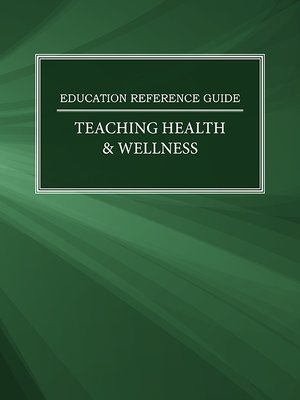
Sign up to save your library
With an OverDrive account, you can save your favorite libraries for at-a-glance information about availability. Find out more about OverDrive accounts.
Find this title in Libby, the library reading app by OverDrive.



Search for a digital library with this title
Title found at these libraries:
| Library Name | Distance |
|---|---|
| Loading... |
The collection begins with an essay from Heather Newton, who highlights the importance of health education and
reviews the main objectives and considerations involved in the implementation of health education programs. R.D.
Merritt discusses health and nutrition studies and claims that “effective school nutrition-education programs and curricula...
help students to enhance their individual lifestyles, develop good personal habits, avoid high-risk behaviors,
and control their own health destinies.” Merritt also remarks on the way schools have scaled back these programs in
the upper grades, despite the fact that adolescents are most likely to engage in high-risk behaviors and endanger their
health. As health education currently stands in American public schools, it is often just one course that involves the
teaching of all fitness and health topics. Shelby L. Hinkle Smith proposes that more schools implement the coordination
school health programs model, which seeks to integrate health education into all aspects of the curriculum. Body
image curriculum programs address the issue of body dissatisfaction by providing students with information, skills,
and prevention programs. In addition to these areas of study, many schools make an effort to provide their students
with First Aid and CPR training, both of which can be greatly beneficial to the community’s health and safety. Susan
Ludwig examines the changes that school health services have experienced in the past and their ongoing role in
encouraging “lifelong success and health” for their students and districts.







